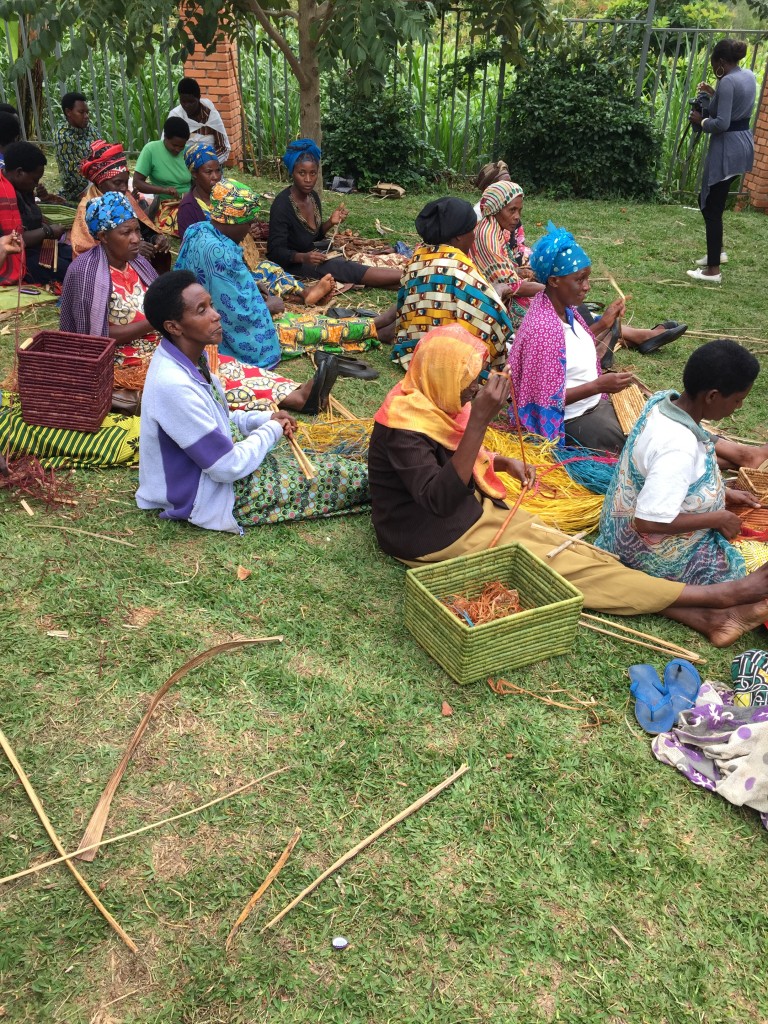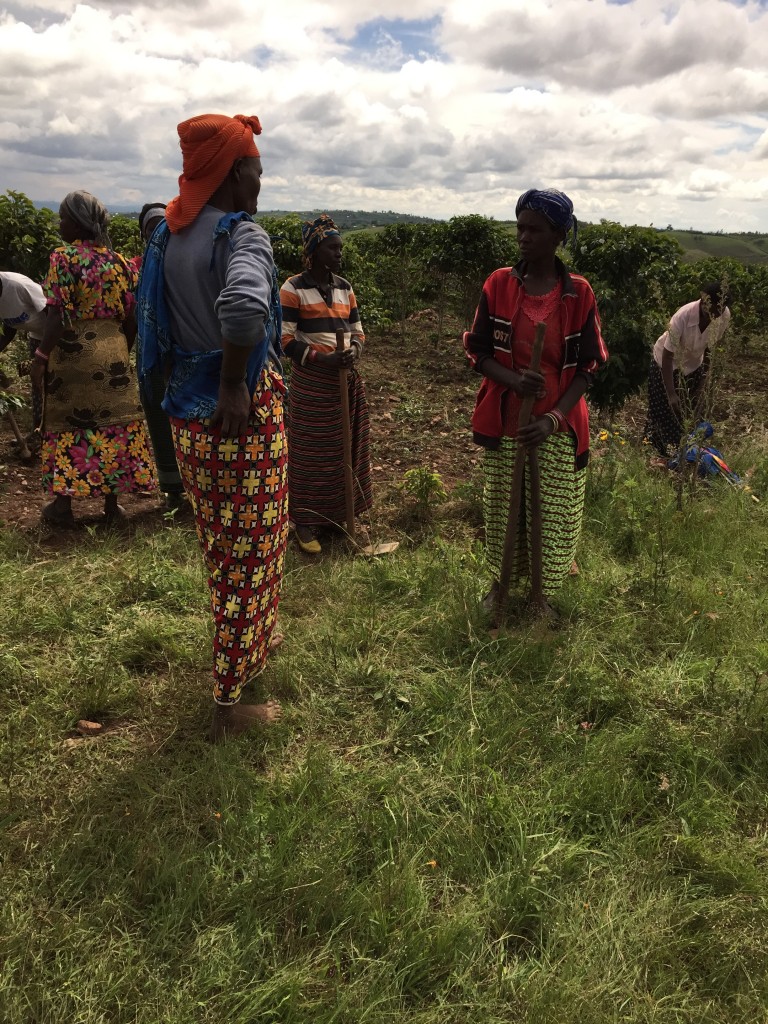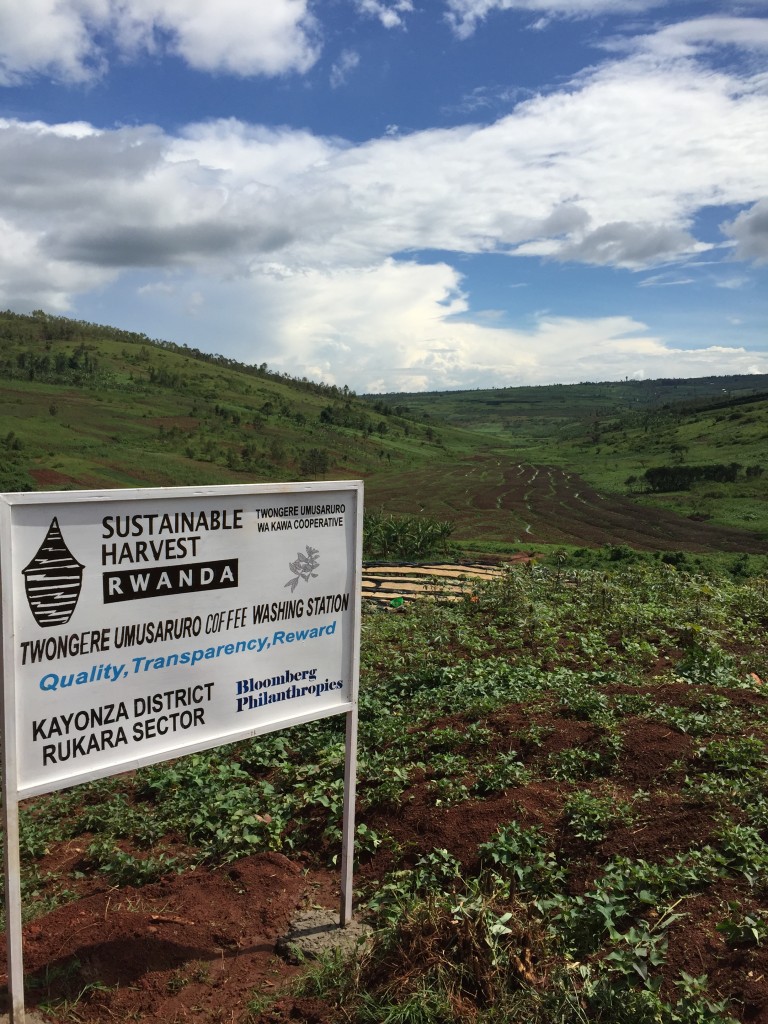By Tarara Deane-Krantz, Bloomberg Philanthropies Founder’s Projects
In 2008, Bloomberg Philanthropies partnered with the Rwandan government and Women for Women International to train Rwandan women survivors of conflict in income-generating activities. Since the start of the partnership, the program has expanded beyond Rwanda, and our commitment in the country has only deepened.
The Rwandan government is committed to Vision2020, an economic development plan aiming to transform Rwanda into a middle-income country by 2020. Our program aligns with this goal by supporting women in rural parts of Rwanda through basic skills training in numeracy, literacy, health and hygiene, as well as vocational training in income-generating activities that align with the economic needs of the Rwandan people.
I first visited our program in Rwanda in April 2015, seven years into our investment, and had a chance to see first-hand the impact of this economic development work.
Our program began in 2008 in Kayonza, a rural district in Eastern Rwanda located a one hour drive from the capital, Kigali. Five years later, with Bloomberg Philanthropies’ support, Women for Women International opened the Women’s Opportunity Center, an educational and community campus in Kayonza where women in the program come for vocational training and the community can gather to buy products produced by the women.
Designed by architect Sharon Davis, the Women’s Opportunity Center is a beautiful set of buildings on five acres of land, built from over 450,000 handmade clay bricks made by women enrolled in our programs. Brickmaking is a well-paid construction job in Rwanda, and it is considered rare for women to be trained in this skill.

The Center is connected to a 200 acre farm where women grow crops to sell in the community. The land was donated by the Rwandan government as part of their work to support women.
Across the five acres, you can see the different vocations available to women in the program in action.
The Center offers training in basket weaving, a traditional Rwandan craft that provides a stable economic trade for women trainees.
These artisan crafts are sold by Rwandan owned businesses such as Janet Nkubana’s “Gahaya Links”, which supplies U.S. stores including Macy’s and Anthropologie and brings women survivors of war together to weave “peace baskets.”


In the Center’s open air classrooms, a previous graduate who works as a housekeeper trains women in the hospitality sector.
A new program being run out of the Center is dairy production. Participating women are given the chance to experiment with producing different types of yogurt and cheese to eventually bring to market.
Down the road from the Center is a women’s coffee cooperative, where women who have graduated from basic farm training run a coffee-growing business in partnership with the Rwandan Coffee Institute. The Institute is a nonprofit affiliate of Bloomberg Philanthropies’ partner Sustainable Harvest.
The women pick the cherries from the coffee trees and prepare them for international export.
In Rwanda, coffee production is one of the fastest growing sectors and has fueled the country’s economic development. And with major international buyers interested in Rwanda’s specialty coffee production, Bloomberg Philanthropies has helped ensure that more women are not only a vital part of this growth – but emerge as strong participants in the international coffee market.

They also run a coffee bean washing station where the women weigh, wash, depulp, dry and do quality control on the coffee. On the day of our most recent visit, the women were processing over nine tons of coffee.
These are only a few of the vocational tracks available to women in Bloomberg Philanthropies’ programs in Rwanda. Working with government and partners like Women for Women and Sustainable Harvest, Bloomberg Philanthropies has worked to train over 67,000 women in Rwanda and more than 140,000 women total in Sub-Saharan Africa in income-generating activities that benefit them and their families.